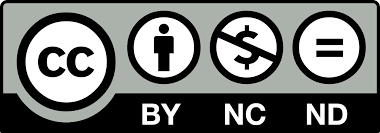Trust Measurement in an Enterprise. A Conceptual Approach
Adam Rudzewicz
Department of Market Analysis and Marketing, Faculty of Economic Sciences, University of Warmia and Mazury in Olsztynhttp://orcid.org/0000-0002-7807-9375
Abstract
This paper presents the meaning of trust in the operation of enterprises and presents three original research tools to measure three areas of trust (internal, inter-organizational and consumer), which the author uses to form a complete construction of trust at the enterprise level.
Measurement assumptions are based on literature studies. The proposed division trust into three areas is justified by the fact that the process of trust development involves various entities and different factors determine specific areas of trust. The author tried to organize and demonstrate the most relevant contemporary dimensions of trust, including employee care, concern for stakeholders, competence, reliability, honesty and openness. The diagnosed dimensions of trust at the general level were then developed into an operational and measurement form, which should best describe the proposed areas of trust. In the process of measurement of trust within the classification proposed was assessed and appropriate research medel were developed. Examples of empirical allowed to determine the usefulness of the proposed measurement tools. The research tools used for this purpose are comprehensible and suitable for management practice, they do not oversimplify reality. The concept of systemic trust analysis satisfies the reliability criterion and it can be hoped that it reflects, to the highest possible degree, the reality in which enterprises operate.
Keywords:
trust, enterprise, stakeholders, measurement modelReferences
Broniewska M. J. 2012. Społeczna odpowiedzialność i zaufanie podstawą strategicznej współpracy międzysektorowej. Management and Business Administration, Central Europe, 21(1): 71–84. DOI: 10.7206/mba.ce.2084-3356.47. Google Scholar
Bugdol M. 2010. Wymiary i problemy zarządzania organizacja opartą na zaufaniu. Wydawnictwo Uniwersytetu Jagiellońskiego, Kraków. Google Scholar
Chrupała-Pniak M., Grabowski D., Sulimowska-Formowicz M. 2016. The value of trust in inter-organizational relations. Economics and Business Review, 2(16): 127–143. DOI: 10.18559/ebr.2016.2.8. Google Scholar
Churchill G. A. 2002. Badania marketingowe. Podstawy metodologiczne. Wydawnictwo Naukowe PWN, Warszawa. Google Scholar
Claro D.P., Claro P.B.O. 2008. Managing trust relationships. Calculative, affective, belief and performance. Brazilian Administration Rewiew, Curitiba, 5(4): 291–292. http://dx.doi.org/10.1590/S1807-76922008000400004. Google Scholar
Dobiegała-Korona B. 2006. Klient kapitałem przedsiębiorstwa. In: Współczesne źródła wartości przedsiębiorstwa. Eds. B. Dobiegała-Korona, A. Herman. Difin, Warszawa. Google Scholar
Dobiegała-Korona B. 2007. Zaufanie klienta. Kwartalnik Nauk o Przedsiębiorstwie, 2: 19. Google Scholar
Dyer J. H., Chu W. 2003. The role of trustworthiness in reducing transaction costs and improving performance. Organization Science, 14: 60. Google Scholar
Gryczka M. 2013. Imperatyw zaufania i współpracy w procesie budowania otwartego ekosystemu wiedzy w Polsce. Management and Business Administration, Central Europe, 21(1): 85–97. DOI: 10.7206/mba.ce.2084-3356.48. Google Scholar
Hejduk I. K., Grudzewski W.M., Sankowska A., Wańtuchowicz M. 2009. Znaczenie zaufania i zarządzania zaufaniem w opinii przedsiębiorstw. E-mentor, 5: 59–60. Google Scholar
Hinner M. B. 2016. Relationships and trust in perceiving price fairness: an exploratory study. Economics and Business Review, 2(16): 54–73. DOI: 10.18559/ebr.2016.2.4. Google Scholar
Kozłowski W., MichalakJ., Rudzewicz A., Warzocha Z. 2014. Produkt i promocja w problematyce marketingowej. Wydawnictwo UWM w Olsztynie, Olsztyn. Google Scholar
Kramer R.M., Lewicki R.J. 2010. Repairing and enhancing trust. Approaches to reducing organizational trust deficits. The Academy of Management Annals, 4(1): 246. http://dx.doi.org/10.1080/19416520.2010.487403. Google Scholar
Levin D.Z., CrossR., AbramsL.C., Lesser E.L. 2002. Trust and knowledge sharing: A critical combination. IBM Institute for Knowledge – Based Organizations. www.researchgate.net (access: 11.02.2017). Google Scholar
Mitręga M. 2009. Zależność i zaufanie w relacjach na rynku B2B. In: Kontrowersje wokół marketingu w Polsce. Niepewność i zaufanie a zachowania nabywców. Eds. L. Garbarski, J. Tkaczyk. WAiP, Warszawa. Google Scholar
Mróz B. 2009. Zaufanie w relacjach firma – konsument. Uwarunkowania i dylematy. In: Kontrowersje wokół marketingu w Polsce. Niepewność i zaufanie a zachowania nabywców. Eds. L. Garbarski, J. Tkaczyk. WAiP, Warszawa. Google Scholar
Mynarski S. 2000. Praktyczne metody analizy danych rynkowych i marketingowych. Kantor Wydawniczy Zakamycze, Zakamycze, p. 32–34. Google Scholar
Pucetaite R., Lamsa A.M., Novelskaite A. 2010. Organizations which have the strongest potential for high-level organizational trust in a low-trust societal context. Transformation in Business & Economics, 9(2): 320. Google Scholar
Rudzewicz A. 2016. Zaufanie w przedsiębiorstwie. Uwarunkowania – relacje – pomiar. Wydawnictwo UWM w Olsztynie, Olsztyn. Google Scholar
Sankowska A. 2011. Wpływ zaufania na zarządzanie przedsiębiorstwem: perspektywa wewnątrz-organizacyjna. Difin, Warszawa. Google Scholar
Seppänen R., Blomqvist K., Sundqvist S. 2007. Measuring inter–organizational trust – a critical review of the empirical research in 1990–2003. Industrial Marketing Management, 36: 249–265. https://doi.org/10.1016/j.indmarman.2005.09.003. Google Scholar
Strumińska-Kutra M. 2011. Przedsiębiorstwo – przedmiot czy podmiot odpowiedzialności? Instytucjonalne uwarunkowania CSR. Master of Business Administration, 4(111): 69–83. Google Scholar
Sztompka P. 2008. Odbudować piramidę. Polityka, 2677 (25.10.2008): 38–39. Google Scholar
Winch S. 2011. Kulturowe uwarunkowania przywództwa w przedsiębiorstwie – wyniki badań. Master of Business Administration, 3: 102–113. Google Scholar
Zygan M. 2014. Zaufanie a koszty transakcyjne. Kwartalnik Nauk o Przedsiębiorstwie, 1: 49–53. Google Scholar
Żądło K. 2014. O wartości zaufania. Komunikacja i budowa zaufania a rynkowa wartość przedsiębiorstwa. Wydawnictwo Poltext, Warszawa. Google Scholar
Department of Market Analysis and Marketing, Faculty of Economic Sciences, University of Warmia and Mazury in Olsztyn
http://orcid.org/0000-0002-7807-9375
License
An Author declares that his paper has not been published before (under the same or another title, or is a part of another publication) and does not infringe copyrights of other persons**. At the same time, the Author transfers to the Publisher the exclusive right to publish and to circulate this work in print in the form of a non-serial journal publication and in a form of an electronic publication.
The journal is available on Creative Common license CC-BY-NC-ND






